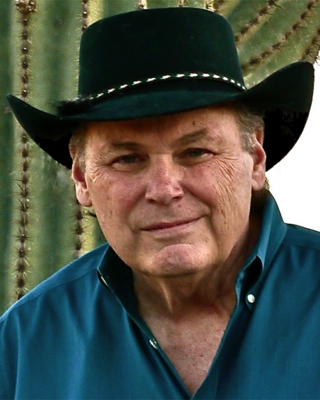
Free will is the capacity or ability to choose between different possible courses of action unimpeded.
David Gauthier is a Canadian-American philosopher best known for his neo-Hobbesian social contract (contractarian) theory of morality, as developed in his 1986 book Morals by Agreement.

Incompatibilism is the view that a deterministic universe is completely at odds with the notion that persons have free will, the latter being defined as the capacity of conscious agents to choose a future course of action among several available physical alternatives. Thus, incompatibilism implies that there is a dichotomy between determinism and free will, where philosophers must support at most one or the other, not both. The incompatibilist view is pursued further in at least three different ways: libertarians deny that the universe is deterministic, hard determinists deny that any free will exists, and pessimistic incompatibilists deny both that the universe is determined and that free will exists.
Compatibilism is the belief that free will and determinism are mutually compatible and that it is possible to believe in both without being logically inconsistent.

Libertarianism is one of the main philosophical positions related to the problems of free will and determinism which are part of the larger domain of metaphysics. In particular, libertarianism is an incompatibilist position which argues that free will is logically incompatible with a deterministic universe. Libertarianism states that since agents have free will, determinism must be false and vice versa.

Hard determinism is a view on free will which holds that determinism is true, that it is incompatible with free will, and therefore that free will does not exist. Although hard determinism generally refers to nomological determinism, it can also be a position taken with respect to other forms of determinism that necessitate the future in its entirety.

Harry Gordon Frankfurt is an American philosopher. He is professor emeritus of philosophy at Princeton University, where he taught from 1990 until 2002. Frankfurt has also taught at Yale University, Rockefeller University, and Ohio State University.
Peter van Inwagen is an American analytic philosopher and the John Cardinal O'Hara Professor of Philosophy at the University of Notre Dame. He is also a research professor of philosophy at Duke University each spring. He previously taught at Syracuse University and earned his PhD from the University of Rochester in 1969 under the direction of Richard Taylor. Van Inwagen is one of the leading figures in contemporary metaphysics, philosophy of religion, and philosophy of action. He was the president of the Society of Christian Philosophers from 2010 to 2013.
Philosophy is the study of general and fundamental problems concerning matters such as existence, knowledge, values, reason, mind, and language. It is distinguished from other ways of addressing fundamental questions by being critical and generally systematic and by its reliance on rational argument. It involves logical analysis of language and clarification of the meaning of words and concepts.
In philosophy, moral responsibility is the status of morally deserving praise, blame, reward, or punishment for an act or omission in accordance with one's moral obligations. Deciding what counts as "morally obligatory" is a principal concern of ethics.

Richard Newell Boyd was an American philosopher, who spent most of his career teaching philosophy at Cornell University where he was Susan Linn Sage Professor of Philosophy and Humane Letters Emeritus. He specialized in epistemology, the philosophy of science, language, and mind.
Frankfurt cases were presented by philosopher Harry Frankfurt in 1969 as counterexamples to the principle of alternate possibilities (PAP), which holds that an agent is morally responsible for an action only if that person could have done otherwise.

Geoffrey Sayre-McCord is an American philosopher who works in moral theory, ethics, meta-ethics, the history of ethics, and epistemology. He teaches at the University of North Carolina, Chapel Hill. He is also the director of the Philosophy, Politics and Economics Society.

R. Jay Wallace is a Professor of Philosophy and Judy Chandler Webb Distinguished Chair for Innovative Teaching and Research at the University of California, Berkeley. His areas of specialization include moral philosophy and philosophy of action. He is most noted for his work on practical reason, moral psychology, and meta-ethics.

James Opie Urmson, was a philosopher and classicist who spent most of his professional career at Corpus Christi College, Oxford. He was a prolific author and expert on a number of topics including British analytic/linguistic philosophy, George Berkeley, ethics, and Greek philosophy.
Carl Ginet is an American philosopher and Professor Emeritus at Cornell University. His work is primarily in action theory, moral responsibility, free will, and epistemology.
Illusionism is a metaphysical theory about free will first propounded by professor Saul Smilansky of the University of Haifa. Although there exists a theory of consciousness bearing the same name (illusionism), it is important to note that the two theories are concerned with different subjects.
Allen William Wood is an American philosopher specializing in the work of Immanuel Kant and German Idealism, with particular interests in ethics and social philosophy. One of the world’s foremost Kant scholars, he is the Ruth Norman Halls professor of philosophy at Indiana University, Ward W. and Priscilla B. Woods Professor, Emeritus, at Stanford University, and has held professorships and visiting appointments at numerous universities in the United States and Europe. In addition to popularising and clarifying the ethical thought of Kant, Wood has also mounted arguments against the validity of trolley problems in moral philosophy.
Derk Pereboom is the Susan Linn Sage Professor in Philosophy and Ethics at Cornell University. He specializes in free will and moral responsibility, philosophy of mind, philosophy of religion, and the work of Immanuel Kant.

Peter A. French is an American philosopher and writer. He is Professor of Philosophy Emeritus at Arizona State University where he taught from 2000 until 2016. He previously was a professor at Northern Arizona University, University of Minnesota, Dalhousie University, Trinity University, and the University of South Florida.









